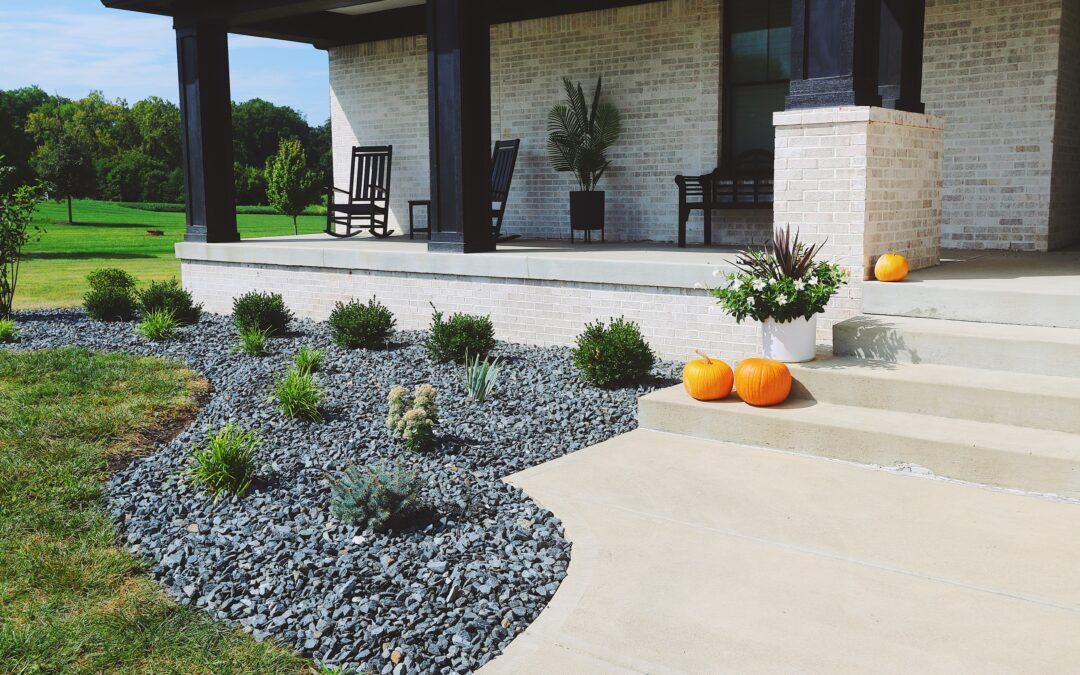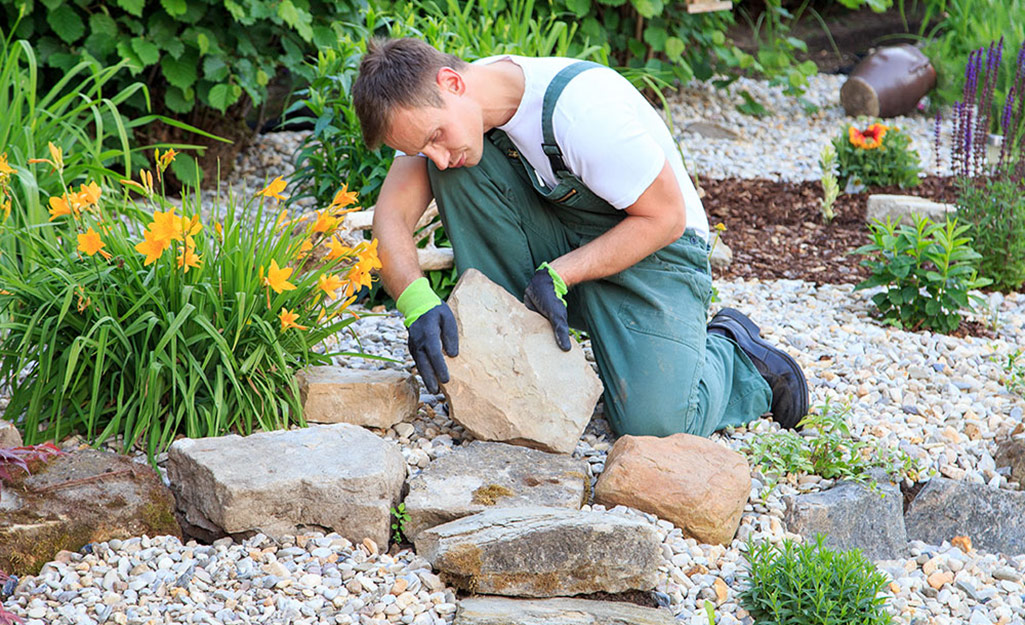Are you looking to enhance your outdoor space with a touch of elegance and functionality? Decorative stone landscaping is an incredible way to add beauty, structure, and value to your home. Having spent countless hours transforming my own garden using stones, I can personally attest to the transformative power of these natural materials. In this comprehensive guide, we’ll explore everything you need to know about decorative stone landscaping, from types of stones to design ideas and maintenance tips.
Understanding Decorative Stone Landscaping
Decorative stones are versatile materials used in landscape design that not only serve practical purposes but also add aesthetic appeal. Incorporating stone into your garden can create focal points, define spaces, and even reduce maintenance in certain areas. Let’s dive deeper into what makes decorative stone landscaping a wise choice for homeowners.
Benefits of Decorative Stone Landscaping
Decorative stone offers numerous benefits that can enhance your landscaping project. Here are some key advantages:
- Aesthetic Appeal: Decorative stones come in various colors, shapes, and sizes, allowing for creative expression.
- Durability: Unlike plants, stones do not require watering, pruning, or fertilizing, making them an excellent low-maintenance option.
- Versatility: Stones can be used in various applications, from walkways and patios to flower beds and retaining walls.
- Weed Control: Properly placed stones can minimize the need for weeding by blocking sunlight.
- Soil Erosion Control: Decorative stone can help prevent soil erosion, especially on slopes.
Types of Decorative Stones
Selecting the right type of decorative stone is vital to achieving your desired look and functionality. Below, we explore different types of stones commonly used in landscaping.
.jpg)
Natural Stones
Natural stones are extracted directly from the earth and are renowned for their organic beauty and durability.
Examples of Natural Stones
- Granite: A hard, durable stone often used for patios and walkways.
- Limestone: Soft and versatile, it’s great for paving and creating walls.
- Slate: Known for its unique color variations, it’s perfect for pathways.

Decorative Gravel
Gravel comes in various sizes and colors and is ideal for driveways, pathways, and garden beds. It’s affordable and easy to work with, making it a popular choice among DIY enthusiasts.
Types of Decorative Gravel
- Pea Gravel: Small stones that create a soft texture.
- River Rock: Smooth, rounded stones that add a natural look.
- Crushed Stone: Broken stones that provide a rustic feel.

Flagstone
Flagstone is a flat stone often used for patios, walkways, and stepping stones. Its irregular shapes allow for creative patterns and designs.
Design Ideas for Decorative Stone Landscaping
Now that you understand the types of decorative stones available, let’s explore some innovative design ideas to inspire your landscaping project.

Creating Pathways with Decorative Stones
Pathways not only guide visitors through your garden but also enhance its overall appeal. Consider using large flat stones or gravel for a natural, inviting look.
Building Retaining Walls
Retaining walls made of stones can serve functional and decorative purposes. They hold back soil while creating raised garden beds or terraces.

Rock Gardens
A rock garden combines stones with drought-resistant plants, creating a serene environment that requires minimal upkeep. This design is perfect for those looking to add a touch of nature to their landscape.
Comparing Decorative Stone to Other Landscaping Materials
| Feature | Decorative Stone | Mulch | Grass |
|---|---|---|---|
| Maintenance | Low | Medium | High |
| Durability | High | Low | Medium |
| Aesthetic Appeal | High | Medium | High |
| Weed Control | Good | Poor | Poor |

How to Install Decorative Stone
Installing decorative stones can be a DIY project, but it’s essential to follow a few steps to ensure a professional finish. Here’s how to get started:
Preparation
- Plan Your Design: Sketch out your plan and gather your materials.
- Clear the Area: Remove any grass, weeds, or debris from the area.
Installation
- Lay a Base: If using gravel or larger stones, consider laying down landscaping fabric to prevent weed growth.
- Add Your Stones: Distribute your stones evenly according to your design.
- Compact the Stones: Use a tamper to compact the stones for a stable surface.
Finishing Touches
After installation, add plants or other decorative elements to further enhance the beauty of your stone landscaping.
Maintenance of Decorative Stone Landscaping
Although decorative stone landscaping is low-maintenance, occasional upkeep is necessary to keep it looking its best. Here are some maintenance tips I’ve learned through experience:
Regular Inspections
Check for any weeds that may sprout through the stones and remove them promptly. Regular inspections will help maintain the appearance of your garden.
Refreshing the Area
Over time, stones may become displaced or lose their luster. Adding new stones or rearranging them can refresh the look of your landscape.
Cleaning Your Stones
For a clean appearance, gently wash the stones with water and a brush to remove dirt and debris. Avoid harsh chemicals that may damage the stones.
Cost Considerations for Decorative Stone Landscaping
Understanding the cost of decorative stone landscaping can help you budget your project effectively. The cost varies based on the type of stone, design complexity, and whether you hire a professional or DIY it. Here’s a breakdown of potential costs:
| Material Type | Cost per Square Foot |
|---|---|
| Gravel | $1 – $3 |
| Natural Stone | $5 – $15 |
| Flagstone | $10 – $20 |
Frequently Asked Questions (FAQs)
What are the best stones for landscaping?
The best stones for landscaping depend on your specific needs and aesthetic desires. Popular options include granite, slate, and river rock for their durability and beauty.
How do I prevent weeds in decorative stone landscaping?
To prevent weeds, lay landscaping fabric under the stones, and regularly check for any that may emerge. A layer of mulch or smaller gravel can also help inhibit weed growth.
Can I use decorative stones around my pool area?
Yes, decorative stones can be used around pools, but it’s essential to choose materials that are non-slip and won’t absorb heat too much, such as light-colored stones or gravel.
Conclusion
Decorative stone landscaping is an excellent choice for anyone looking to enhance their outdoor space while reducing maintenance. With the right materials, creative designs, and a little effort, you can transform your garden into a stunning oasis. Embrace the beauty of nature and let decorative stones bring your landscaping dreams to life!